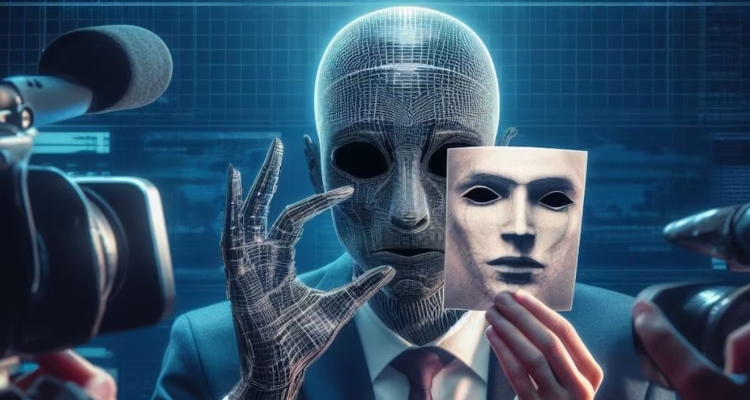
The Delhi High Court on Wednesday remarked that deepfake technology poses a significant threat to society and emphasized that the solution to counter Artificial Intelligence (AI) lies within technology itself. The court was hearing two petitions regarding the lack of regulation on deepfake technology in the country.
Deepfake technology enables the creation of highly realistic videos, audio recordings, and images that can mislead viewers by superimposing the likeness of one person onto another, altering their words and actions, and thus spreading false narratives or misinformation.
A bench, comprising Acting Chief Justice Manmohan and Justice Tushar Rao Gedela, noted, “The Central government needs to start addressing this issue. Deepfake technology is going to become a serious menace in society.”
Justice Manmohan further commented, “It’s shocking that one cannot trust what they see or hear anymore. The ability to manipulate reality to this extent is deeply concerning.”
One of the petitions was filed by journalist Rajat Sharma, challenging the non-regulation of deepfake technology and seeking orders to block public access to applications and software that enable the creation of such content. The second petition, filed by lawyer Chaitanya Rohilla, also raised concerns about deepfakes and the unregulated use of artificial intelligence.
The court granted the petitioners two weeks to file an additional affidavit with their suggestions and scheduled the next hearing for October 24. During the proceedings, the bench noted that the government had previously shown concern over this issue, particularly before elections, but now seemed less active.
Additional Solicitor General Chetan Sharma, representing the Centre, acknowledged that deepfake technology is a significant problem. He noted that counter AI technology could be used to mitigate the potential damage. Sharma outlined four key areas needed to address the issue: detection, prevention, grievance support, and raising awareness, adding that laws and advisories alone would not suffice.
The court reiterated that technology must be the antidote to AI-related threats and urged the government to understand the potential harm caused by such technology. The Delhi High Court had earlier directed the Ministry of Electronics and Information Technology to respond to the petitions.
Rajat Sharma’s public interest litigation (PIL) emphasized the dangers posed by the proliferation of deepfake technology, including misinformation, identity theft, blackmail, and erosion of trust in media and public institutions. The PIL called for the government to establish regulatory frameworks to define and classify deepfakes and AI-generated content and to prohibit their malicious use.
The plea highlighted that despite the Centre’s intention to formulate regulations to address deepfakes and synthetic content in November 2023, no concrete action has been taken. The petitioner also cited incidents where his image and AI-generated voice were used in fake videos to endorse products without his consent.
The PIL requested that the government be directed to block public access to platforms and applications enabling the creation of deepfakes and to mandate social media intermediaries to remove such content immediately upon receiving a complaint from the affected individual.




